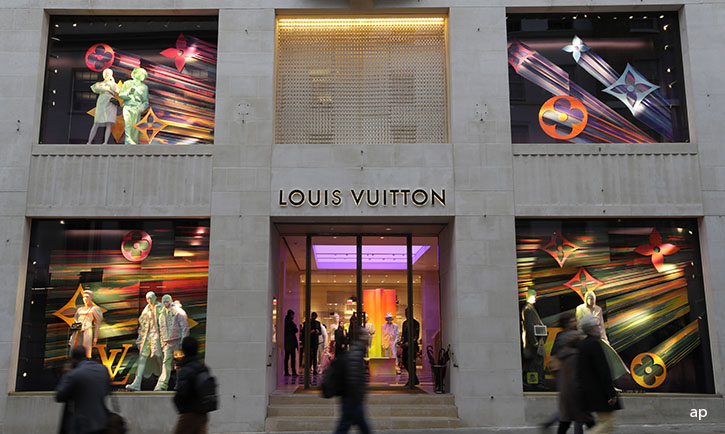
Retail investors tired of the traditional finance world can be forgiven for finding Bitcoin tempting. Yet the cryptocurrency's staggering volatility and criminal overlap are just two reasons to be extremely careful, if not avoidant altogether.
And then there's the environment, long highlighted as one of Bitcoin's intrinsic flaws.
Bitcoin mining is a heavily energy-intensive enterprise. Some estimate the process uses as much energy as countries like the Netherlands or the Philippines.
As climate change periodically wreaks havoc across the world and the stakes get higher and higher for countries to reduce carbon emissions, the increasing popularity of Bitcoin, which in turn pushes demand to mine the digital asset, complicates the green transition.
In particular, Bitcoin mining's energy intensity comes from its proof of work (PoW) process, which involves hundreds of computers guessing random numbers until they choose the right one.
But that is not the only concern.
Bitcoin and Crypto: Why The Noise?
So says professor Hilary J. Allen, a professor of law and associate dean for scholarship at the American University Washington College of Law.
"There were a bunch of stories that came out last year about the noise pollution in places where there are high concentrations of Bitcoin miners, and how loud it is for the surrounding communities," she says.
"There were also stories of people in upstate New York who had their electricity costs go through the roof because there was so much demand on the grid from Bitcoin miners. It has spillover effects for prices for everyday people."
Not all cryptocurrencies use the energy-intensive proof of work method, however. Last year, Ethereum shifted to proof of stake (PoS), a different type of consensus mechanism for validating transactions. Will Bitcoin do the same thing? Unlikely.
"It's quite clear Bitcoin has no intention of shifting to PoS. The only way to avoid these environmental costs would be to shift to a different consensus mechanism and I do not think they are ever going to do it," she says.
Martin Vezer, ESG associate director at Morningstar Sustainalytics, sees potential upside for PoW and PoS consensus protocols.
"Ethereum’s switch from PoW to PoS last year eliminated the need for mining Ether and reduced its energy intensity by more than 99%. Some academic research suggests these types of advances could eventually make distributed ledgers less energy intensive than traditional central payment systems," he says.
Vezer also says crypto mining only has a significant carbon footprint when drawing on non-renewable sources of power.
"Some Bitcoin miners are strategically located in places with access to low-carbon energy sources, such as hydro," he says.
"Also, in colder climates, energy used in crypto mining can be upcycled to heat buildings and potentially recover over 90% of the energy used."
He then points to other environmental concerns stemming from the production of hardware that supports the crypto market, with a particular focus on the manufacture of semiconductors, whose construction is water intensive and causes e-waste.
'Better Off With Cash'
Another hot issue for Bitcoin is regulation, or lack thereof, which for many retail investors is rightly a red flag. Europe is ahead of the pack on the UK here, and the US has only recently announced the approval of Bitcoin spot exchange-traded funds (ETFs), a move that has prompted as much excitement as concern. Perhaps mercifully, UK investors can't buy them.
For its part, the European Union has already introduced introducing "MiCA", or Markets in Crypto Assets regulation, a framework for issuers and service providers of cryptocurrencies, which covers utility tokens, "stablecoins" and even the wallets where crypto assets are held.
Ian Horne is watching this unfold in Europe from the UK. He is head of content for the continent for Money 20/20, but is also the author of Why DeFi Matters: What Cryptoassets, Web3 and the Metaverse Really Mean for Finance. He welcomes attempts to regulate Bitcoin but believes there are still considerable obstacles.
"The reason there is a challenge to regulate crypto assets is they exist on a blockchain, which validates itself. And with a lot of things like Bitcoin, you cannot reverse a transaction. Once it is done it is done, and you cannot always identify who is using it," he says.
This is where things get criminal. Bitcoin has been branded the "criminal currency" due to its popularity among organised criminals and dark web actors. But Horne says most people misunderstand how transparent this process truly is.
"It used to be used by criminals but now if you wanted to do it, it leaves a permanent audit trail. So if people can find out who owns the wallet, you're in hot water. A lot was coming out that Hamas, for instance, was using crypto for much of its funding.
"It later transpired a very small portion of its funding comes from cryptocurrency because it is not actually effective. If you are going to commit a crime, you are better off using cash."
Is DeFi Really Decentralised?
For Allen, the fall of Sam Bankman-Fried and the collapse of FTX speak to the abject failures of governance around crypto currency and the need for law to curtail abuses.
"When you have all these entities that are not regulated at all, it is not surprising that they are poorly run," she says.
"FTX did not have people in key roles in the C-Suites. People were employing their girlfriends. What was really shocking was that venture capital firms were willing to give money to an institution like FTX that was so completely lacking in even the most basic governance foundations."
Allen argues the crux of the matter is the contradiction between Bitcoin and other cryptocurrencies: centralisation versus decentralisation.
Although, cryptocurrency's cheerleaders have championed themselves as pioneers of decentralisation by using blockchain to transfer control and decision making from centralised groups, FTX and other exchanges are inherently centralised.
"Processing transactions using blockchain is inherently inefficient," she says.
"It will never be as efficient as a more-centralised intermediary. So they go to all this expense to have decentralised technology, but then they have economic centralisation that basically undoes a lot of those benefits."
And that, for her at least, is the rub.
"The competitive advantage as I see it is this: so far using this technology has allowed players in the crypto industry to avoid a lot of regulation because they've convinced the regulators this is something new and different that does not fall under traditional regulatory schemes," she says.
"By evading oversight they evade a lot of compliance costs and that is part of the business model."




























